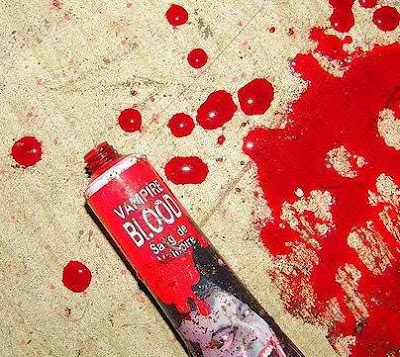 As the Crips grew in South Central Los Angeles in the early 1970s they began targeting other gangs. It was during this time of conflict that several gangs joined forces to combat the growing Crip threat. The most well known gang within this group was the Piru Street Boys. They lead the revolt against the Crips and were instrumental in creating the Bloods gang in 1972.
As the Crips grew in South Central Los Angeles in the early 1970s they began targeting other gangs. It was during this time of conflict that several gangs joined forces to combat the growing Crip threat. The most well known gang within this group was the Piru Street Boys. They lead the revolt against the Crips and were instrumental in creating the Bloods gang in 1972.During the next 10-years the Bloods continued to operate and grow in a fragmented manner. Conflict with the Crips continued and the Bloods found themselves heavily outnumbered.
Between 1982 – 1984 the violence between the two groups skyrocketed. It was during this time crack hit Los Angeles. Crackm or more properly called rock cocainem was cheaper and much more addictive than the powder form of the drug. Gang territories became more important as the many Blood and Crip sets fought over drug sales locations. Some Blood members moved to several large cities throughout the West Coast to expand their drug market. To minimize attention from law enforcement, many Blood gang members abandon wearing obvious identifiers of gang affiliation so they could continue illegal activity with little fear of apprehension.
It was during the late 1980s that the Bloods became a household name. The movie Colors, staring Sean Penn and Robert Duvall was released which focused on the gang problem in Los Angeles. It has been rumored that some movie theaters actually promoted the movie by offering a bandana to movie attendees. It was after this movie that many teens with no connection to the Los Angeles based gang began creating their own Blood gangs. Although many of these groups were nothing more than childish groups mimicking dress and slang they saw in a movie, some soon became involved in violent activity and drug sales comparable to gang activity committed by original Blood gang members in California.
In 1993, a group on the East Coast created a gang known as the United Blood Nation. Born in the Rikers Island New York jail, African American inmates created the group as a way to protect themselves from the Latin Kings, which was the most prevalent group in the jail system at that time. Although the United Blood Nation (UBN) was born in the prison system, as members were paroled to the streets, they formed street gangs on the East Coast under the same name, while emulating the Los Angeles Blood lifestyle.
Although the majority of Blood gangs identify with the color red, members may not always wear gang identifiers when engaging in criminal activity. On the West Coast members are more likely to use a bandana for identification, while some Blood sets on the East Coast will use a colored beaded necklace.
Although Blood gangs share the same name, there is no formal leadership structure that controls all Blood gangs. A Blood gang member in Springville, Utah may be very active in the gangster lifestyle, yet will have no connection to Blood gangs in the West or East Coast.
Bloods will align themselves with other gangs to engage in criminal activity, including their rivals the Crips, although most alliances quickly fade away. The Bloods are known to be involved in all forms of criminal activity, but are mostly known for drug sales.
source: knowgangs
No comments:
Post a Comment